Stop 👏 saying 👏 languages 👏 and accents 👏 are ugly 👏 or awful 👏
stop 👏 saying 👏 languages 👏 and accents 👏 are ugly 👏 or awful 👏
i understand that some languages/dialects/accents may be difficult for you personally to understand because you speak differently, or they may contain sounds that you don’t like, but please don’t use value judgements like “lazy,” “bad,” or “ugly,” even jokingly
negative attitudes towards language both originate from and contribute to marginalization
More Posts from Langues-noires-blog and Others
it’s really a pity no one cares about foreign languages irl because I am a fountain of fun and interesting facts about linguistics and grammar and etymology but my peasant friends could not be any less interested
Watching my toddler figure out how to language is fascinating. Yesterday we were stumped when he kept insisting there was a “Lego winner” behind his bookshelf - it turned out to be a little Lego trophy cup. Not knowing the word for “trophy”, he’d extrapolated a word for “thing you can win”. And then, just now, he held up his empty milk container and said, “Mummy? It’s not rubbish. It’s allowed to be a bottle.” - meaning, effectively, “I want this. Don’t throw it away.” But to an adult ear, there’s something quite lovely about “it’s allowed to be a bottle,” as if we’re acknowledging that the object is entitled to keep its title even in the absence of the original function.

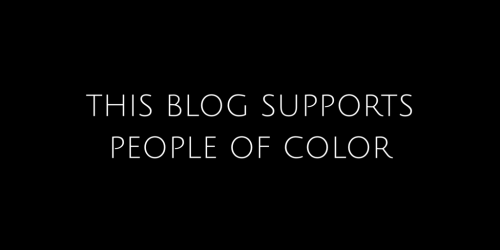
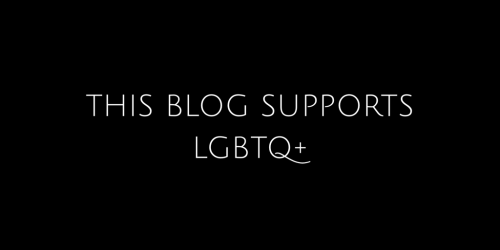

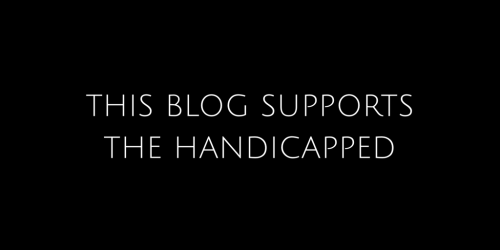
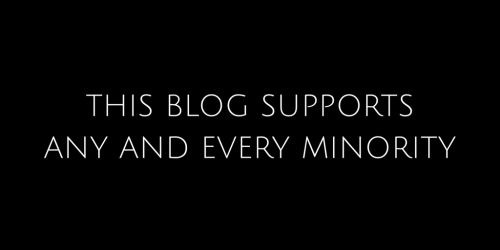
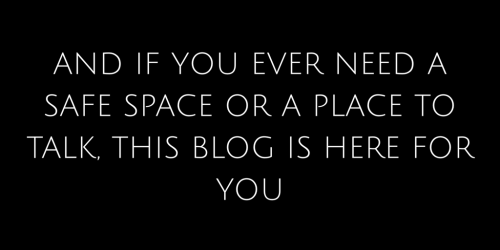
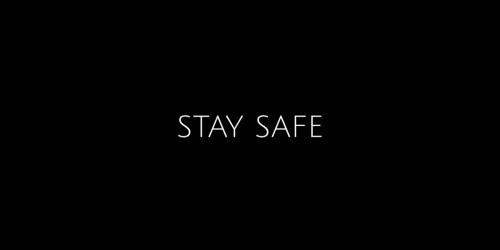
Dark times all around but there are still people out there who love you
Do not hurt yourself, do not hurt others, get help, talk to someone, anyone. Humanity has survived before and we can do it now if we all just support each other. My country and my people let me down and endangered my life but there’s nothing I or anyone else can do about that so let’s try to spread the love that is so clearly lacking.

I previously made a post about Russian Podcasts and German Podcasts. Here is one for French since I started the language. Many you can find on iTunes, on Android using Pocket Casts, or on their own websites/RSS feed. There are several more podcasts in French, but these should be enough for now.
Language Learning
Coffee Break French
FrenchPod101
French Your Way
Je French
Learn French with Alexa
Mot du Jour
One Minute French
Real Deal French
Spotify- Learn French
Survival French Phrases
Listening For Beginners-Intermediates
Cultivate Your French: Intermediate-Advanced.
Daily French Pod: Beginner-Advanced. Transcripts can be bought.
Easy French Poetry: Beginner-Int. Includes transcripts.
Français Authentique: Intermediate-Advanced. Includes transcripts.
French Podcasts: A2-B1. Includes transcripts.
Journal en français facile: Intermediate. Includes transcripts.
Learn French by Podcast: Beginner to Advanced. Includes transcripts and grammar lessons.
Native French Speech Podcast: Int.-Advanced. Transcripts can be bought.
News in Slow French: Beginner to Intermediate. Includes transcripts.
One Thing in a French Day: A2-B2. Includes transcripts.
The French Podcast: Beginner to Intermediate. Transcripts can be bought.
French Only
AnthroStory: Anthropology.
AppLoad: Gadgets and technology.
Bienvenue à Valnuit: French version of Welcome to Nightvale
La Conversation scientifique: Science.
Grosses Têtes: News & culture.
L’histoire du soir: Medieval literature.
LSD, La série documentaire: Culture & news.
Les Nouveaux chemins de la connaissance: Philosophy.
Les Pressés de l’Expression: Language and linguistics.
Parler Cuisine: Food and cooking.
Podcasts d'Europe: Culture, economics, politics.
Podcast Science: Science.
Poésie et ainsi de suite: Poetry
Positron: Music, film, TV.
Le RDV Jeux: Gaming.
Les Regardeurs: Art.
Rendez-Vous Avec X: History
Le rendez-vous Tech: Technology.
Le Salon noir: History.
Franceculture: Several podcasts can be found here and sorted by theme.
Franceinter: Website that hosts several more podcasts.
Francemusique: Website that has more podcasts.
German café vocabulary
for @callmejake13 :)
das Café (Pl: Cafés) - café der Teller (Pl: Teller) - plate die Tasse (Pl: Tassen) - cup, mug die Untertasse (Pl: Untertassen) - saucer der Löffel (Pl: Löffel) - spoon die Speisekarte (Pl: Speisekarten) - menu
das Frühstück - breakfast der Kuchen (Pl: Kuchen) - cake die Torte (Pl: Torten) - cake (mostly consists of cream) der Muffin (Pl: Muffins) - muffin das Hörnchen / das Croissant - croissant der Keks (Pl: Kekse) - cookie, biscuit das Brot - bread der Zucker - sugar die Milch - milk die Sahne - cream das Spiegelei - fried egg das Rührei - scrambled eggs
der Kaffee (Pl: Kaffees) - coffee
der Cappuccino - cappuccino
der Espresso - espresso
der Latte macchiato - latte macchiato
der Eiskaffee - iced coffee
koffeinfreier Kaffee - decaffeinated coffee
der Teebeutel - tea bag der Tee (Pl: Tees) - tea
schwarzer Tee - black tea
grüner Tee - green tea
Früchtetee - fruit tea
Kräutertee - herbal tea
Pfefferminztee - mint tea
Rooibostee - rooibos tea
Eistee - iced tea
der Kakao - cocoa der Milchshake (Pl: Milchshakes) - milkshake der Saft (Pl: Säfte) - juice
essen - to eat trinken - to drink bestellen - to order bezahlen - to pay

NOUNS der Advent - Advent der Adventskalender - advent calendar das Apfelmus - apple sauce das Band (Bänder) - ribbon das Christkind - Christ child die Cranberrysoße - cranberry sauce die Dekoration (Dekorationen) - decoration der/das Kamin (Kamine) - fireplace der/das Knallbonbon (Knallbonbons) - cracker der Eierlikör - eggnog das Eis - ice/ice cream der Engel - angel die Ente (Enten) - duck die Gans (Gänse) - goose das Gebäck - baked goods das Geschenk (Geschenke) - present/gift das Geschenkpapier (Geschenkpapiere) - wrapping paper/gift paper die Glocke (Glocken) - bell das Glöckchen - little bell der Glühwein - mulled wine der Handschuh (Handschuhe) - glove der Heilige Abend - Christmas Eve die heiße Schokolade - hot chocolate die Kastanie (Kastanien) - chestnut der Keks (Kekse) - cookie/biscuit die Kerze (Kerzen) - candle die Kirche (Kirchen) - church der Kranz (Kränze) - wreath das Lametta - tinsel der Lebkuchen - gingerbread das Lebkuchenherz (Lebkuchenherzen) - gingerbread heart das Lebkuchenhäuschen - gingerbread house das Lebkuchenmännchen - gingerbread man die Lichterkette (Lichterketten) - string of fairy lights die Mandel (Mandeln) - almond das/der Marzipan - marzipan der Mince Pie (Mince Pies) - mince pie der Mistelzweig (Mistelzweige) - piece of mistletoe die Mütze (Mützen) - beanie der Nordpol - North Pole die Nuss (Nüsse) - nut der Nussknacker - nutcracker die Pfeffernuss (Pfeffernüsse) - small round gingerbread biscuit das Plätzchen - cookie/biscuit das Popcorn - popcorn das Rentier (Rentiere) - reindeer der Schinken - ham der Schlitten - sled/sledge/sleigh der Schlittschuh (Schlittschuhe) - ice skate der Schmuck - decoration [uncountable] der Schnee - snow der Schneeball (Schneebälle) - snowball die Schneeflocke (Schneeflocken) - snowflake der Schneemann (Schneemänner) - snowman die Schokolade (Schokolade) - chocolate der Schornstein (Schornsteine) - chimney das Schweinefleisch - pork das Spielzeug (Spielzeuge) - toy die Stechpalme (Stechpalme) - holly der Stern (Sterne) - star der Stiefel - boot der Stollen - bread made with dried fruit and dusted with powdered sugar die Süßigkeit (Süßigkeiten) - candy/sweet/lolly der Tannenbaum (Tannenbäume) - fir tree/Christmas tree der Tannenzapfen - pine cone der Truthahn (Truthähne) - turkey der Weihnachtsbaum (Weihnachtsbäume) - Christmas tree die Weihnachtskarte (Weihnachtskarten) - Christmas card der Weihnachtskuchen - Christmas cake die Weihnachtskugel (Weihnachtskugeln) - Christmas bauble das Weihnachtslied - Christmas carol der Weihnachtsmann (Weihnachtsmänner) - Santa/Father Christmas der Weihnachtsmarkt (Weihnachtsmärkte) - Christmas market der Weihnachtspudding - Christmas pudding die Weihnachtssocke (Weihnachtssocken) - Christmas sock der Weihnachtsstern (Weihnachtssterne) - poinsettia der Weihnachtsstrumpf (Weihnachtsstrümpfe) - Christmas stocking die Weihnachtszeit - Christmas time die Winterbeere (Winterbeeren) - holly berry der Wunsch (Wünsche) - wish der Wunschzettel - wish list der Zimt - cinnamon der Zimtstern (Zimtsterne) - star shaped cinnamon biscuit with white icing die Zuckerstange (Zuckerstangen) - candy cane VERBS auspacken - to open/to unwrap backen - to bake basteln - to make/to do arts and crafts braten - to roast dekorieren - to decorate einen Brief an den Weihnachtsmann schreiben - to write a letter to Santa einen Schneemann bauen - to make a snowman einpacken - to wrap up eislaufen - to ice skate etwas an jemanden verschenken - to give something to someone etwas mit der Post senden - to send something in the mail etwas zu Weihnachten bekommen - to get something for Christmas feiern - to celebrate jemandem etwas schenken - to give something to someone Kerzen anzünden - to light candles schmücken - to decorate/to adorn schneien - to snow sich (+dat) etwas zu Weihnachten wünschen - to wish for something for Christmas verpacken - to wrap up Zeit mit seiner Familie verbringen - to spend time with one’s family zusammenkommen - to meet/to get together
ADJECTIVES bezaubernd - enchanting geröstet - roasted glitzernd - twinkling/sparkling glänzend - shining golden - gold/golden magisch - magical mit Schokolade gefüllt - chocolate filled silbern - silver vorweihnachtlich - pre-Christmas weihnachtlich - Christmassy winterlich - wintery zauberhaft - enchanting/delightful
french vocab from the first half of my year abroad
I’m home for Christmas now, which means I’m back on Scottish soil with decent internet. It’s giving me a chance to reflect on my French and how much it has improved just in three months of living in France. So I thought I’d share some of the things that I learned from living in the Charente-Maritime:
ah, bah, oui (expression) this seems to be the equivalent of ‘yeah but no’ when people have a false-start on a sentence. usually, i heard this in disagreements in my classroom when students were wanting to correct another student but couldn’t get the words out fast enough. i think it’s a hilarious thing to say and i’ve been trying to incorporate it into my way of speaking.
en fait (expression) this literally means ‘in fact’ or ‘actually’, which i think can come off a little rude in english but is actually a common expression in french. french people i have encountered use ‘en fait’ to start sentences, to provide more information, to correct, basically just all the time!
franchement (adverb) in english, i’m a big fan of using ‘tbh’ or ‘to be honest’, and this is the best french equivalent to that. it sounds so very french when it’s said and can mean ‘frankly’, ‘honestly’, ‘indisputably’ or ‘without hesitation’, depending on the context.
rater (verb) i picked up this new verb when i was telling a class about how i failed my driving test. i knew that ‘rater’ can mean ‘to miss’, as in ‘i missed the train’, but one student turned to another and said that ‘elle a raté’ and it was explained to me that ‘rater’ can also mean ‘to fail’, or in my case ‘to mess up’ something.
se tromper (verb) this verb means ‘to be mistaken’, and i definitely found myself saying ‘je me suis trompée’ a lot while I was just new to the country!
une chocolatine (noun) I was living on the south-west coast of France in the Charente-Maritime region which means that I picked up some new and different ways of saying things. I was quickly informed by my students in the most sincere and serious way possible that the famous ‘pain au chocolat’ pastry does not exist in the Charente-Maritime and I was to ask for ‘une chocolatine’ at the local boulangerie instead. I now use both nouns interchangeably!
Vocabulaire français - des verbes
remorquer - to tow, lug
râler - to grumble, complain, gasp
ébranler - to shake, rattle, weaken
sonder - to sound, plumb, probe, survey
germer - to germinate, sprout, grow
étreindre - to embrace, clasp, clutch, choke
remuer - to move, touch, stir
étouffer - to suffocate, stifle, smother
bêler - to bleat, whine
gémir - to moan, whine
s’égarer - to get lose, lose one’s way, digress
ficeler - to tie up, bind
frotter - to rub, scrape, scrub
délier - to untie, undo, unknot
énerver - to annoy, irritate
effarer - to alarm, frighten
crisper - to tense, contract
haleter - to pant
balbutier - to stammer, stutter
bégayer - to stammer, stutter
harceler - to harass, pester
accabler - to impose, overwork, overburden
épier - to observe, spy on
délayer - to mix, water, dilute
éventrer - to disembowel, gut
étreindre - to embrace, clasp, clutch, grasp
sévir - to hit, strike
Words taken from: Le Horla (Maupassant)
Isn’t it just plain hilarious when you read something in a foreign language and understand it then realise that you don’t even learn that language but you can decode the meaning based on your knowledge of other languages?
-
 accusedoffeminism reblogged this · 3 years ago
accusedoffeminism reblogged this · 3 years ago -
 greekflowerboy reblogged this · 6 years ago
greekflowerboy reblogged this · 6 years ago -
 greekflowerboy liked this · 6 years ago
greekflowerboy liked this · 6 years ago -
 thiag0511 reblogged this · 6 years ago
thiag0511 reblogged this · 6 years ago -
 thiag0511 liked this · 6 years ago
thiag0511 liked this · 6 years ago -
 ignis-et-glacius reblogged this · 7 years ago
ignis-et-glacius reblogged this · 7 years ago -
 fun-with-colors liked this · 7 years ago
fun-with-colors liked this · 7 years ago -
 theredqueeniswatching liked this · 7 years ago
theredqueeniswatching liked this · 7 years ago -
 idah liked this · 7 years ago
idah liked this · 7 years ago -
 atheneia reblogged this · 7 years ago
atheneia reblogged this · 7 years ago -
 tis-i-thefrenchiestfry reblogged this · 7 years ago
tis-i-thefrenchiestfry reblogged this · 7 years ago -
 nlkenthusiast reblogged this · 7 years ago
nlkenthusiast reblogged this · 7 years ago -
 astrologydeep-blog liked this · 7 years ago
astrologydeep-blog liked this · 7 years ago -
 athelophobia-94 liked this · 7 years ago
athelophobia-94 liked this · 7 years ago -
 sapphireloev liked this · 8 years ago
sapphireloev liked this · 8 years ago -
 a-really--lazy-writer liked this · 8 years ago
a-really--lazy-writer liked this · 8 years ago -
 blauersamt-blog liked this · 8 years ago
blauersamt-blog liked this · 8 years ago -
 bring-us-back-light reblogged this · 8 years ago
bring-us-back-light reblogged this · 8 years ago -
 tinytimdyke reblogged this · 8 years ago
tinytimdyke reblogged this · 8 years ago -
 tinytimdyke liked this · 8 years ago
tinytimdyke liked this · 8 years ago -
 ashkenegro reblogged this · 8 years ago
ashkenegro reblogged this · 8 years ago -
 whimsically-whimsical liked this · 8 years ago
whimsically-whimsical liked this · 8 years ago -
 well-imagine-this liked this · 8 years ago
well-imagine-this liked this · 8 years ago -
 isabelg-b liked this · 8 years ago
isabelg-b liked this · 8 years ago -
 whispheres liked this · 8 years ago
whispheres liked this · 8 years ago -
 joanredikulas liked this · 8 years ago
joanredikulas liked this · 8 years ago -
 thatweirdpredatorgirl liked this · 8 years ago
thatweirdpredatorgirl liked this · 8 years ago -
 toadbewwy reblogged this · 8 years ago
toadbewwy reblogged this · 8 years ago -
 pansexualpizza liked this · 8 years ago
pansexualpizza liked this · 8 years ago -
 that-dude-i-guess reblogged this · 8 years ago
that-dude-i-guess reblogged this · 8 years ago -
 that-dude-i-guess liked this · 8 years ago
that-dude-i-guess liked this · 8 years ago -
 milkylovexoxo liked this · 8 years ago
milkylovexoxo liked this · 8 years ago -
 la-femme-enrose liked this · 8 years ago
la-femme-enrose liked this · 8 years ago -
 yuelotus liked this · 8 years ago
yuelotus liked this · 8 years ago -
 bnniegirl liked this · 8 years ago
bnniegirl liked this · 8 years ago -
 sparklykestis reblogged this · 8 years ago
sparklykestis reblogged this · 8 years ago -
 pufpower liked this · 8 years ago
pufpower liked this · 8 years ago
